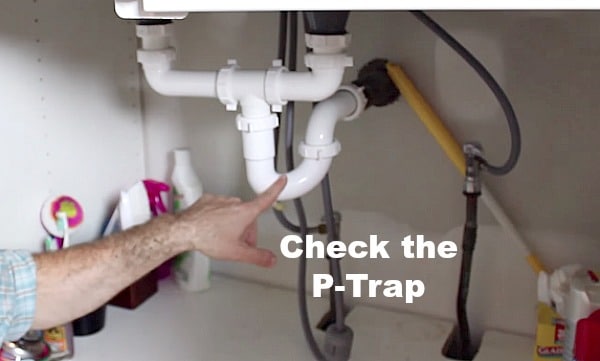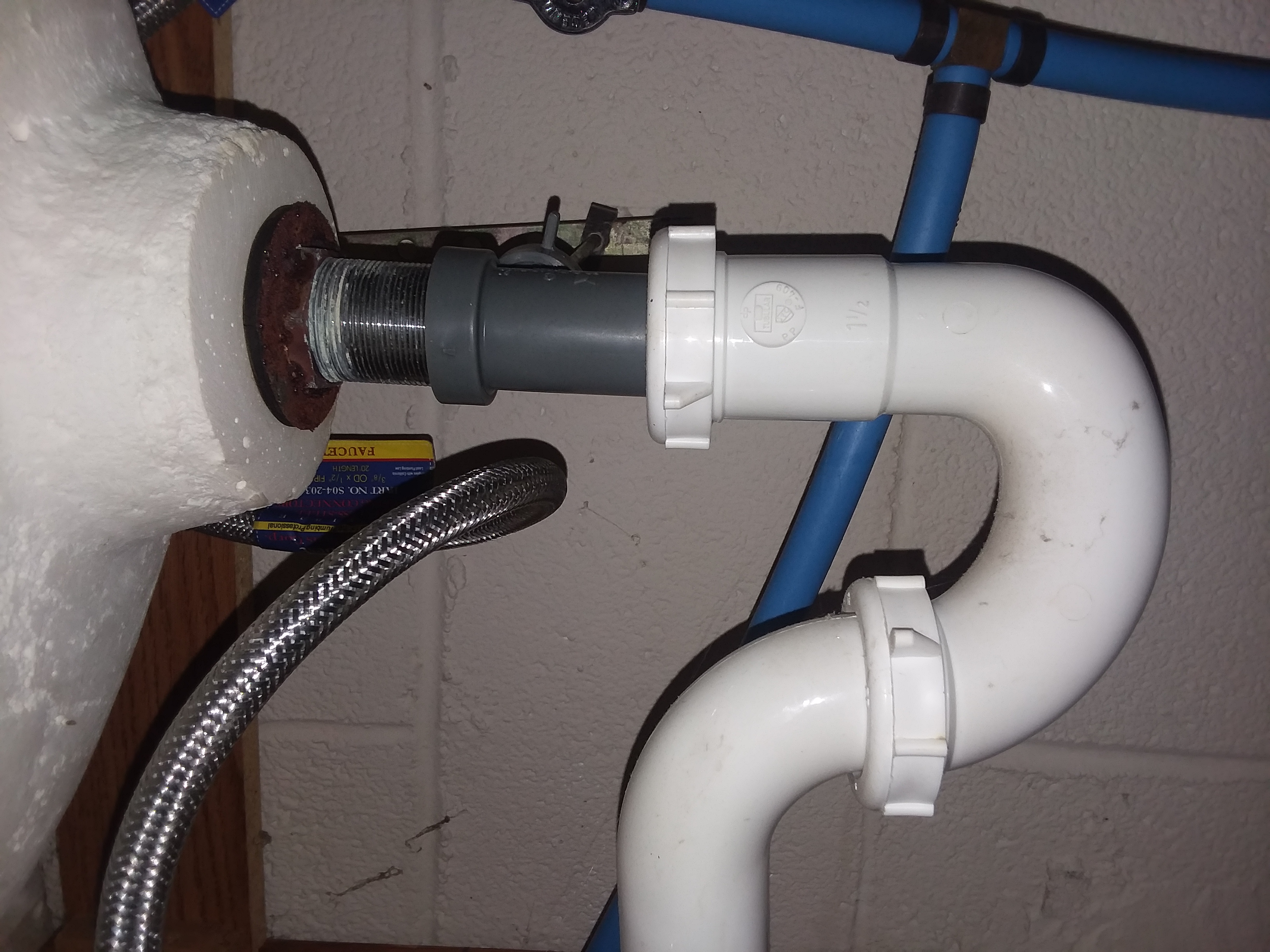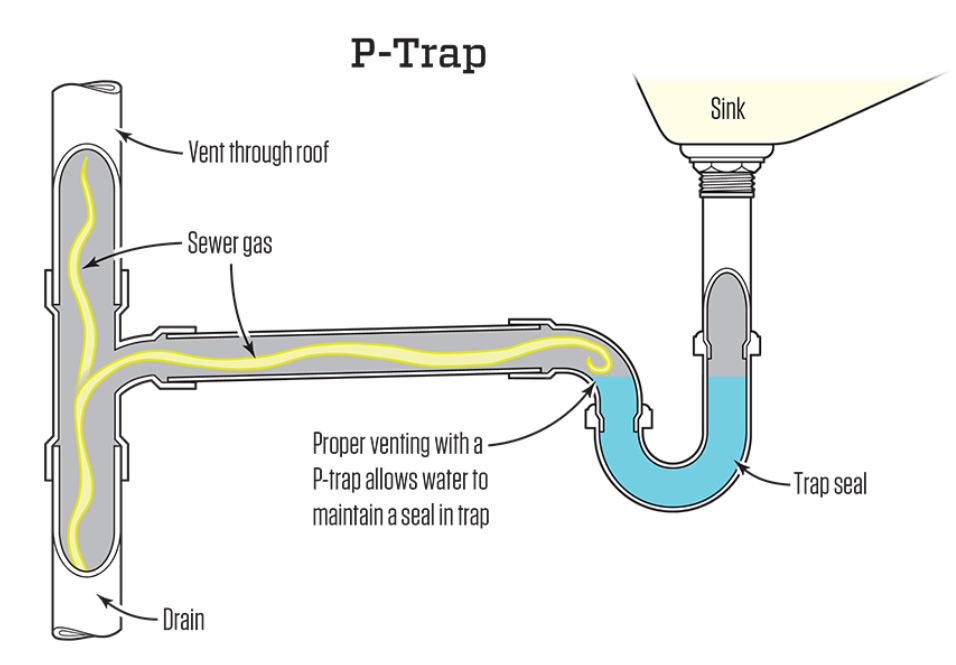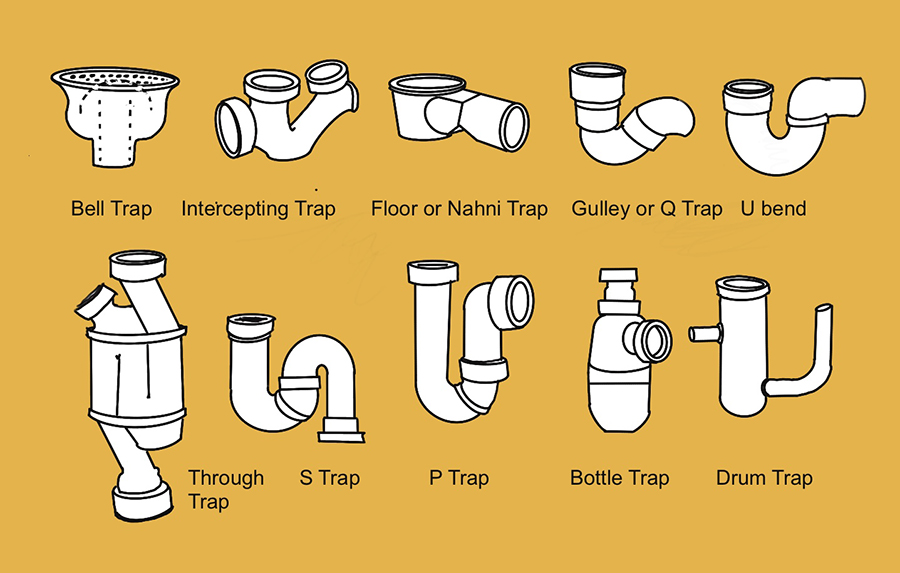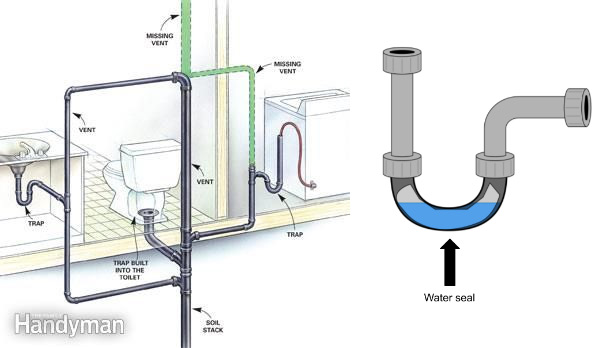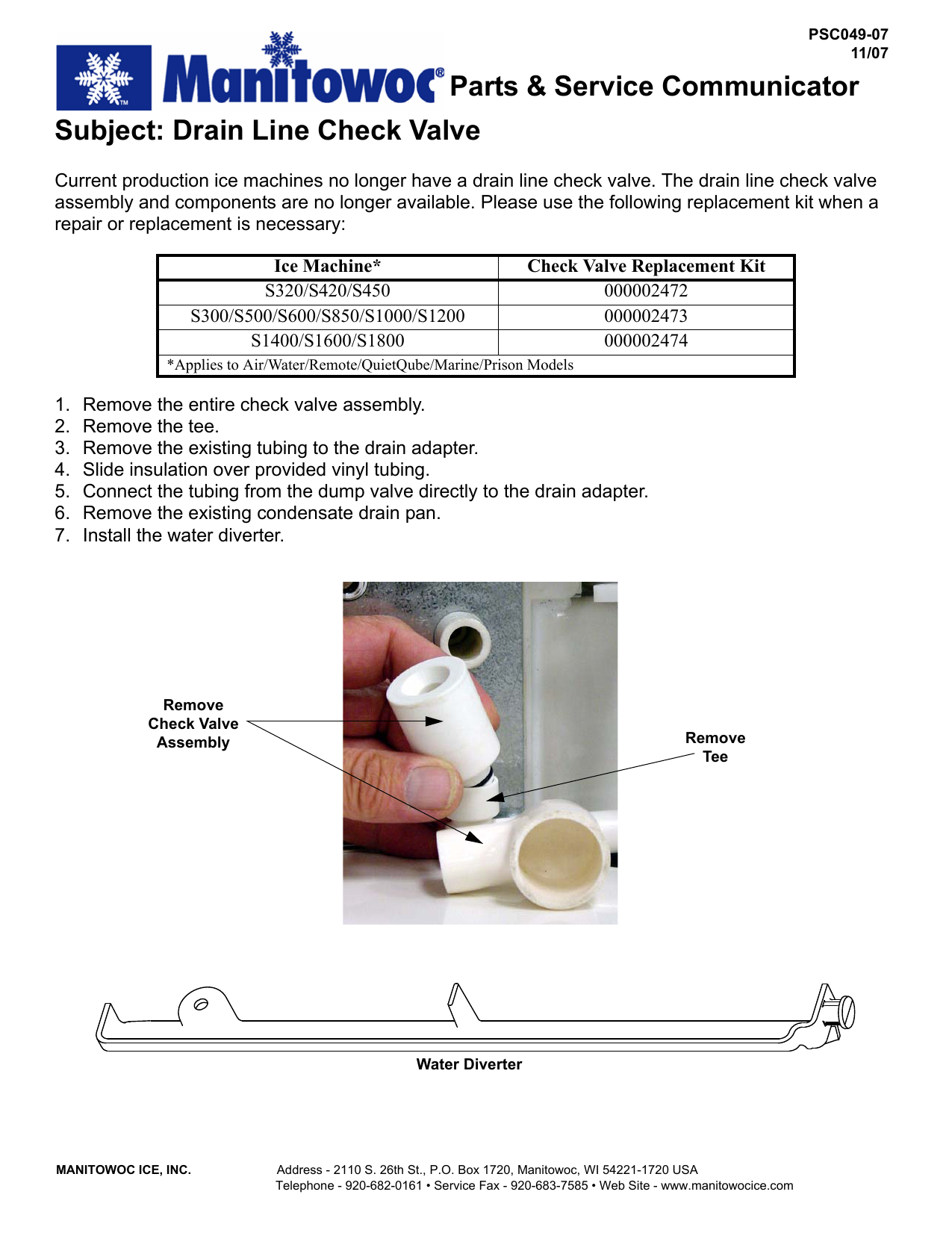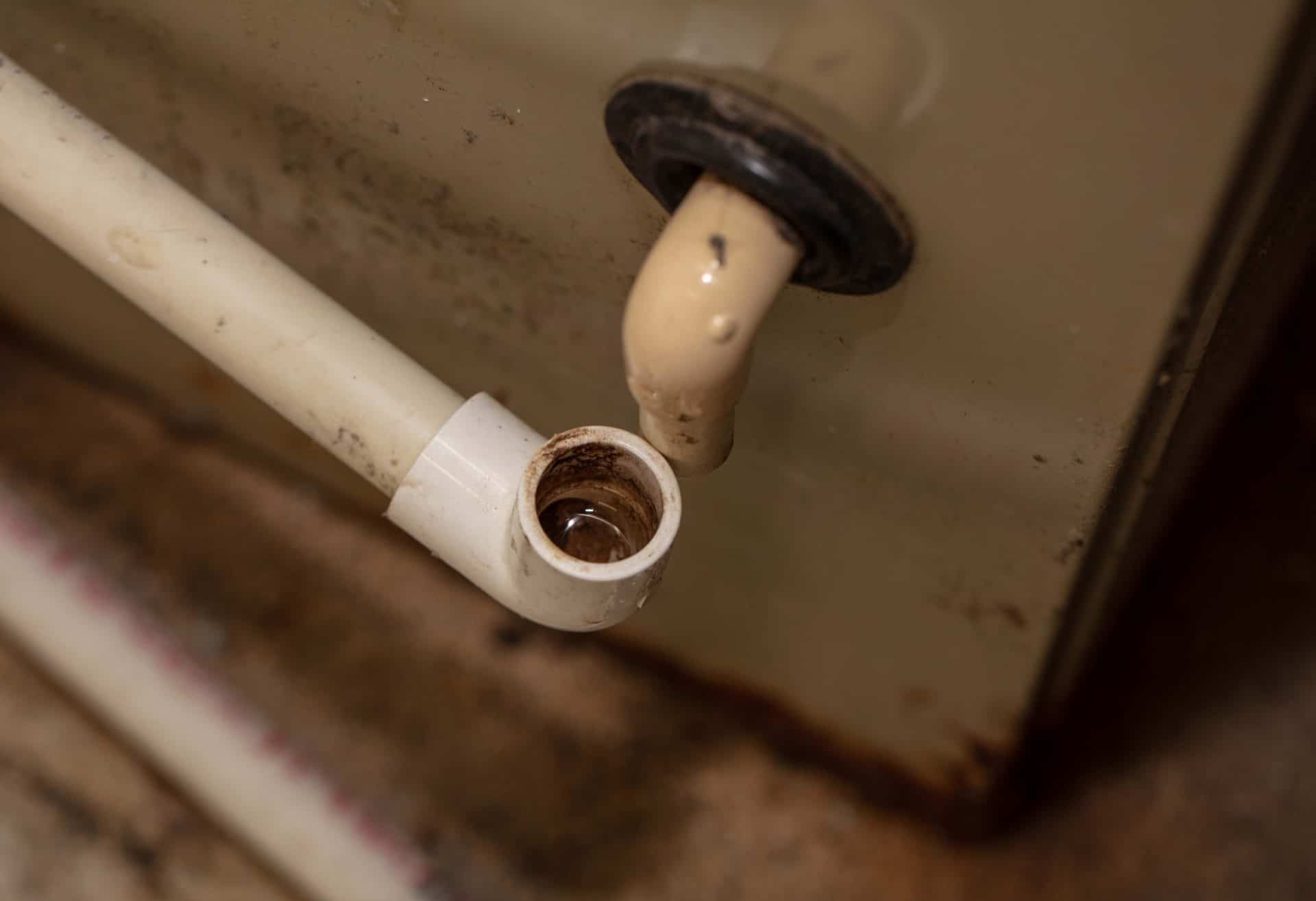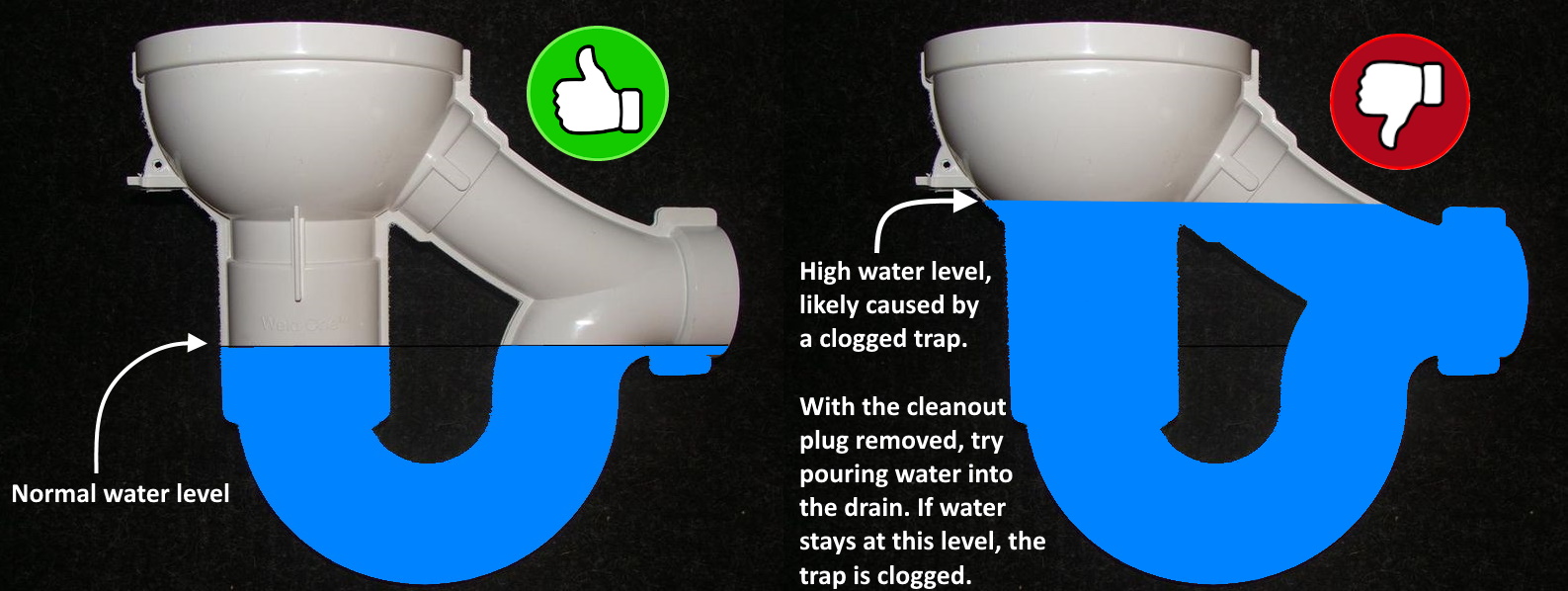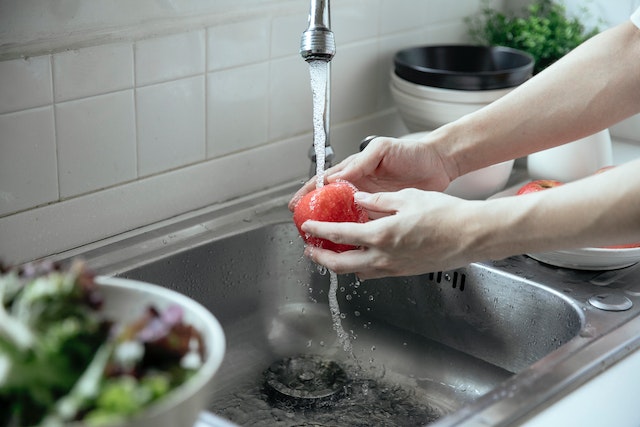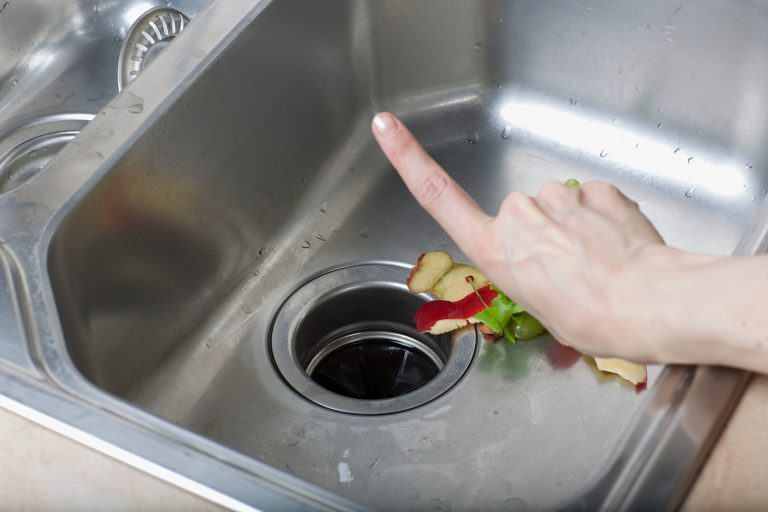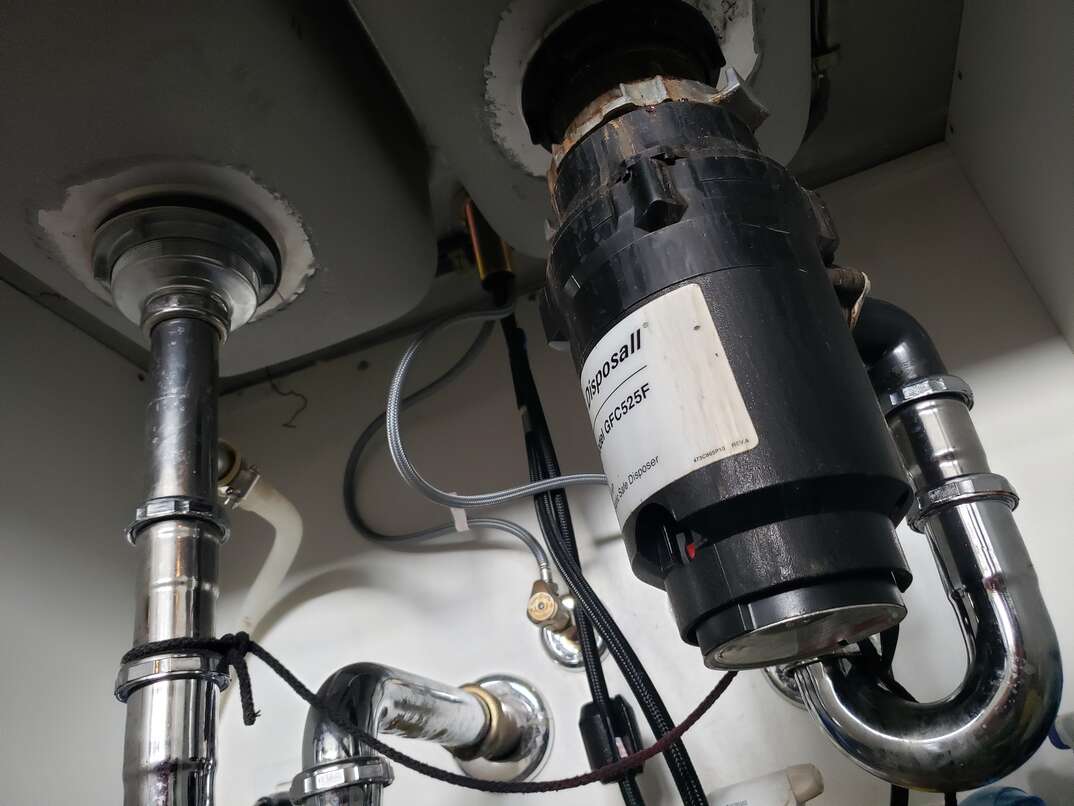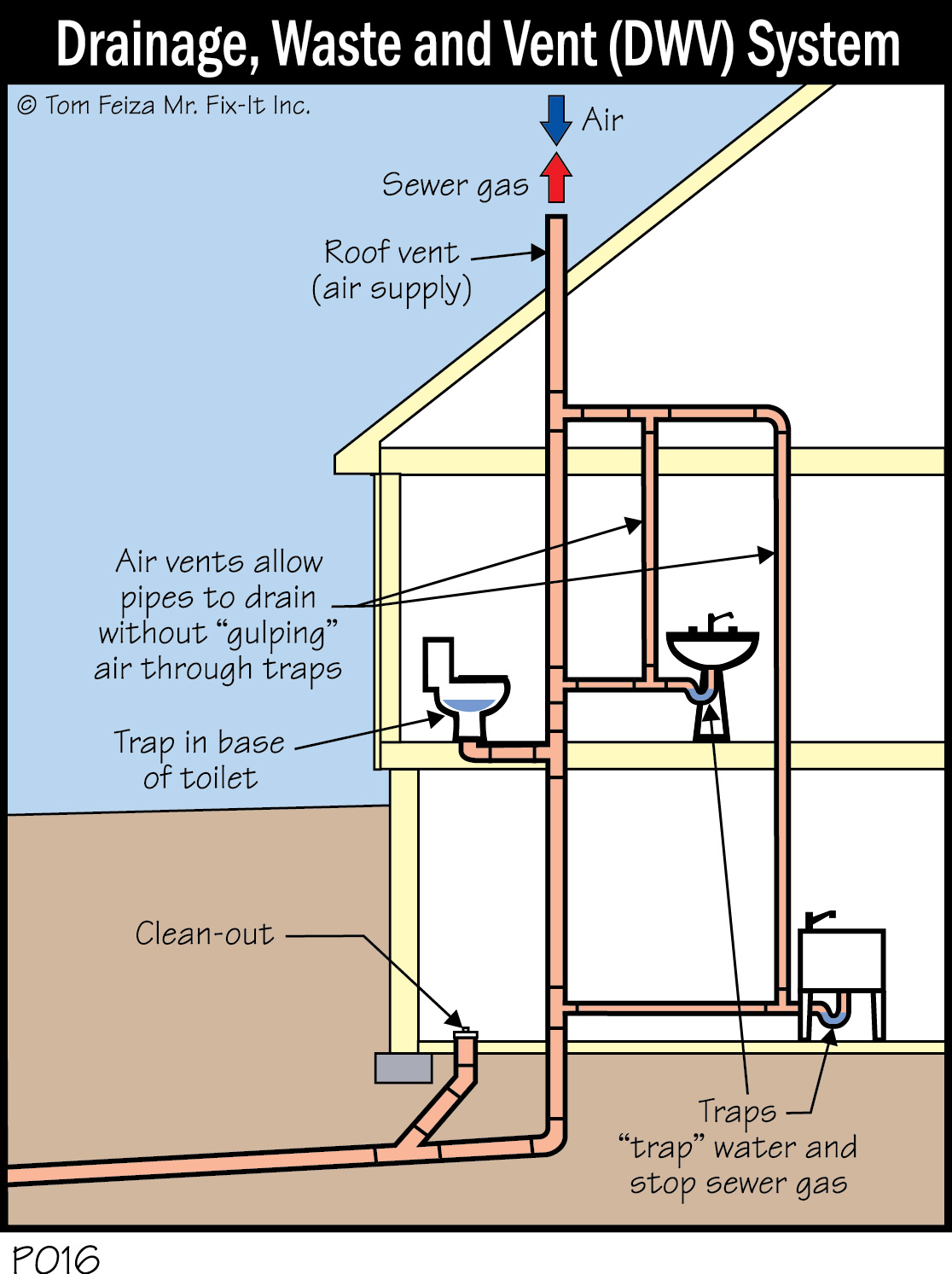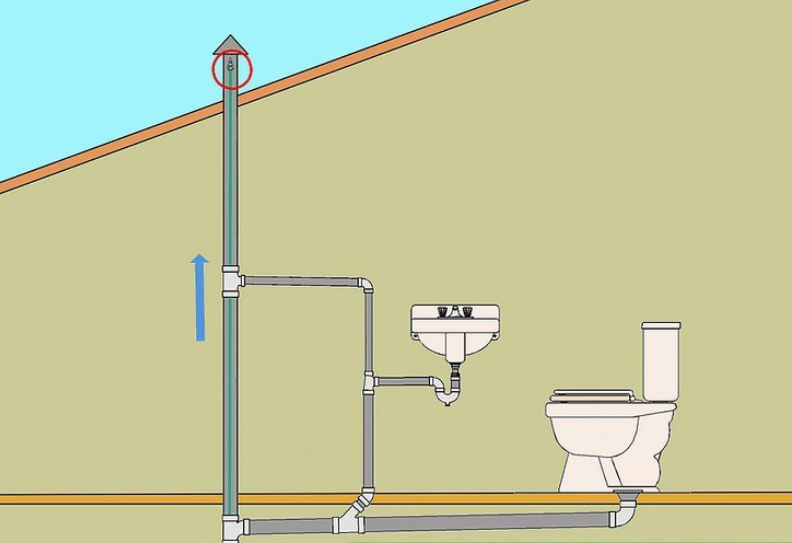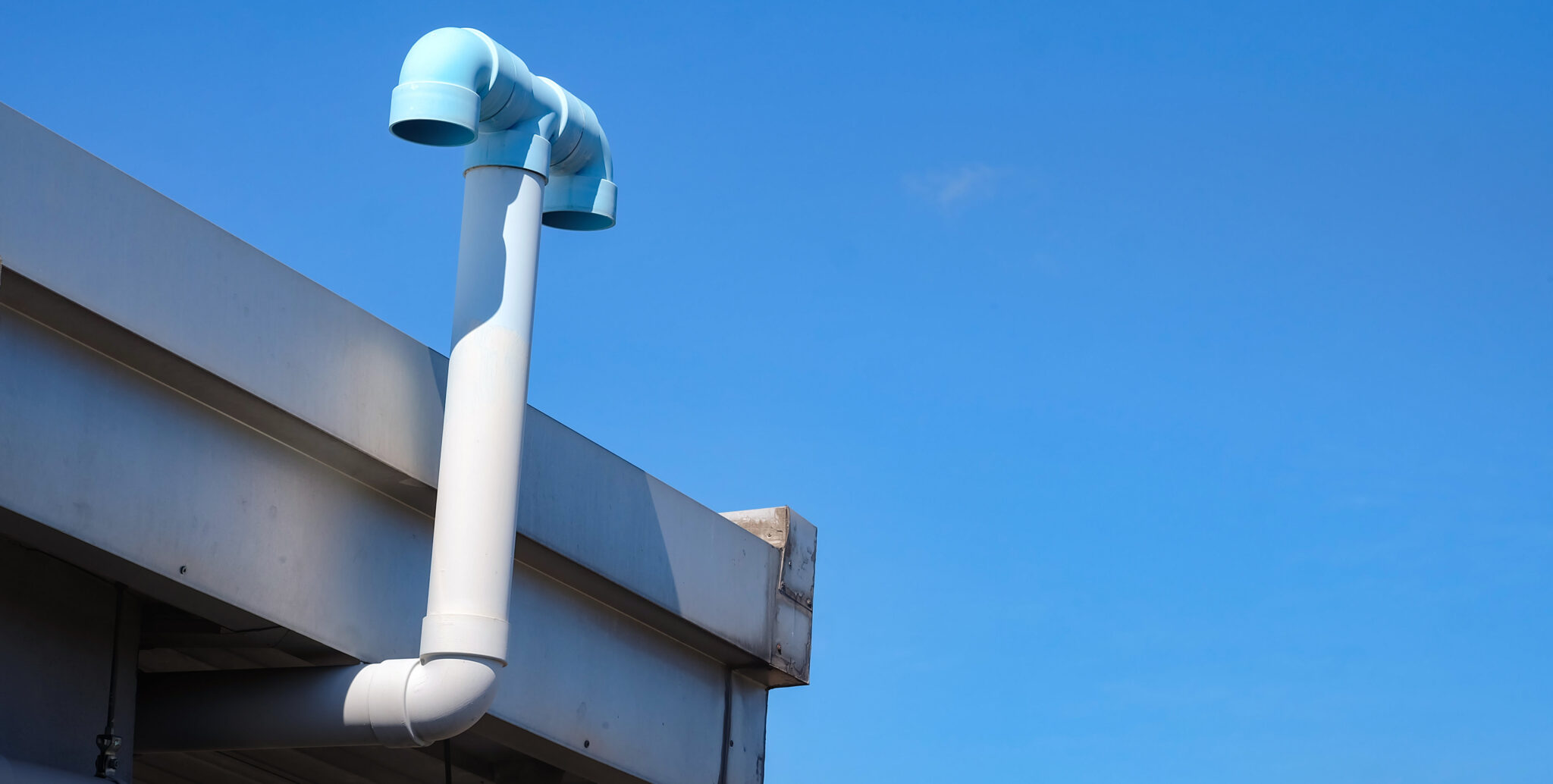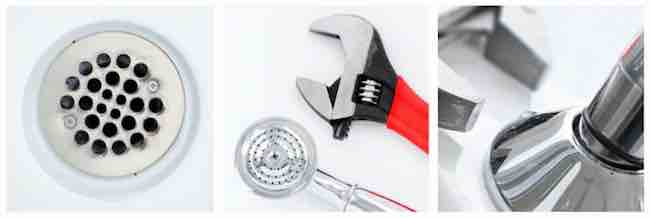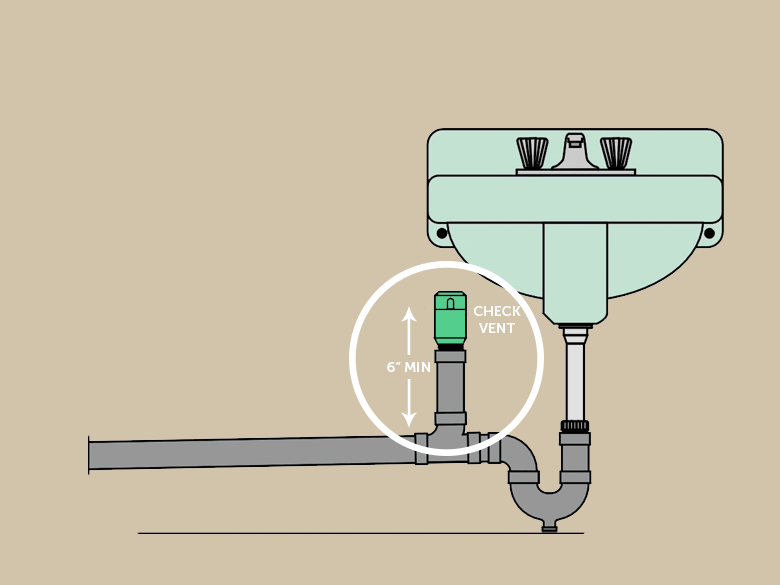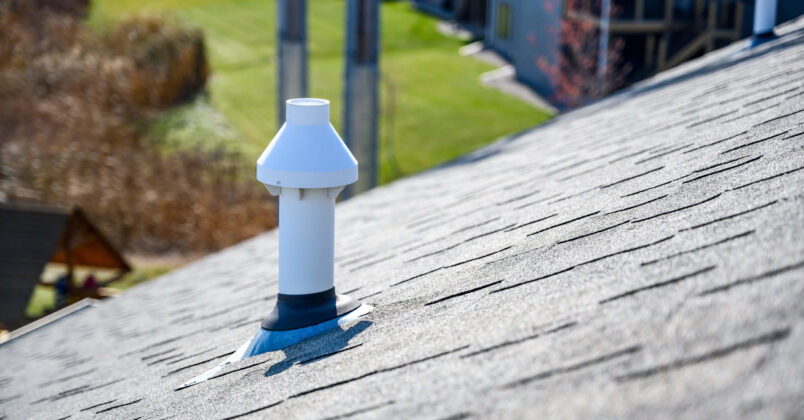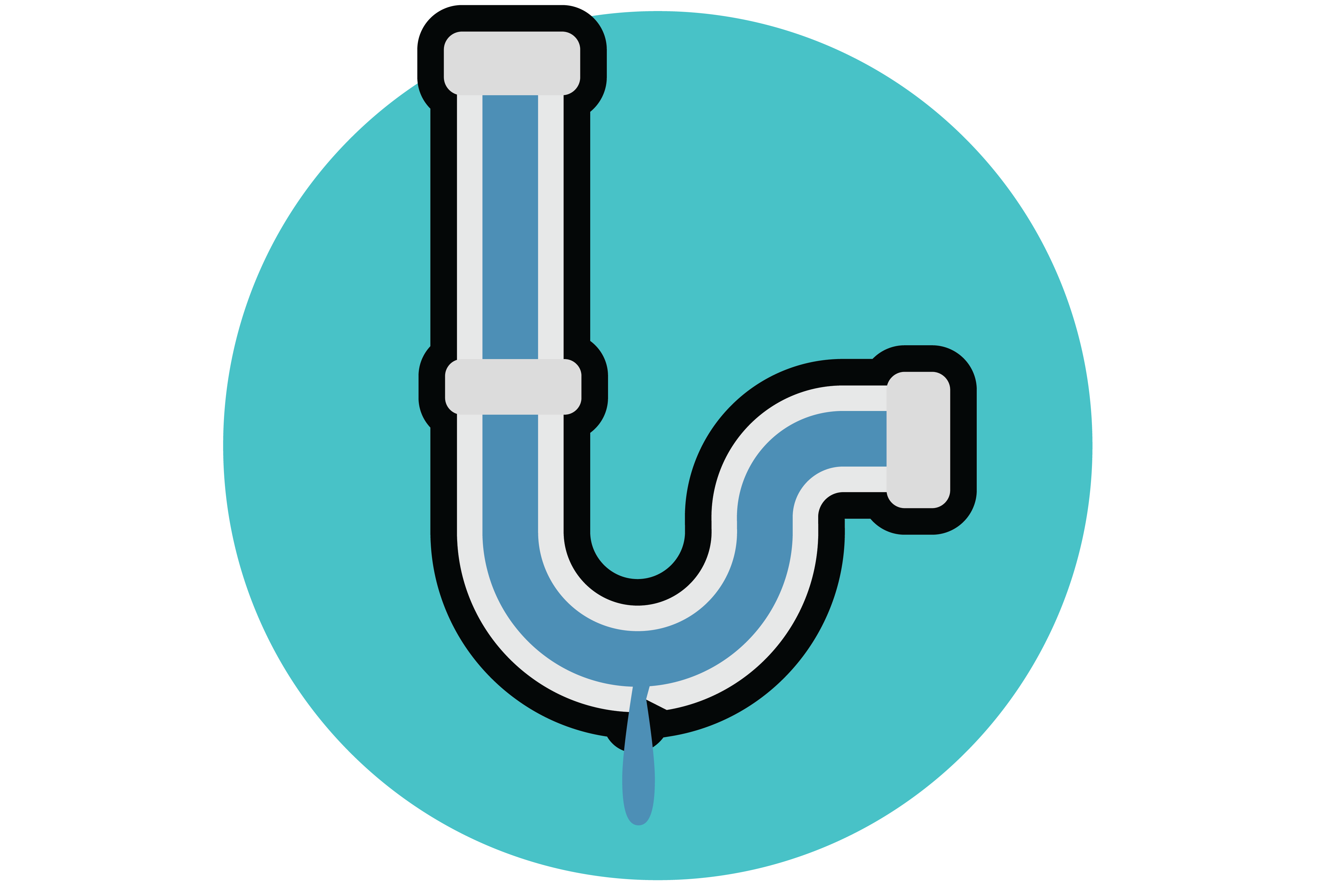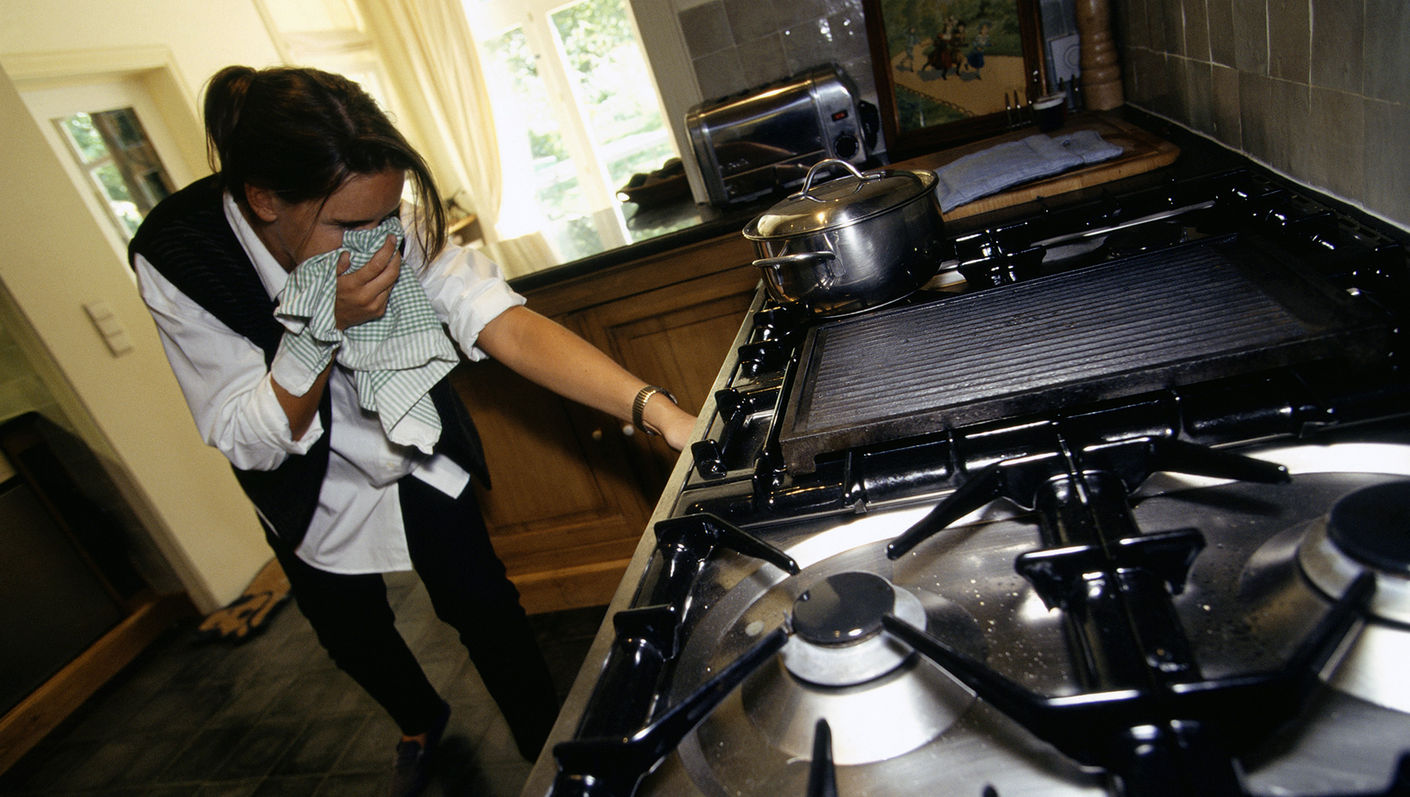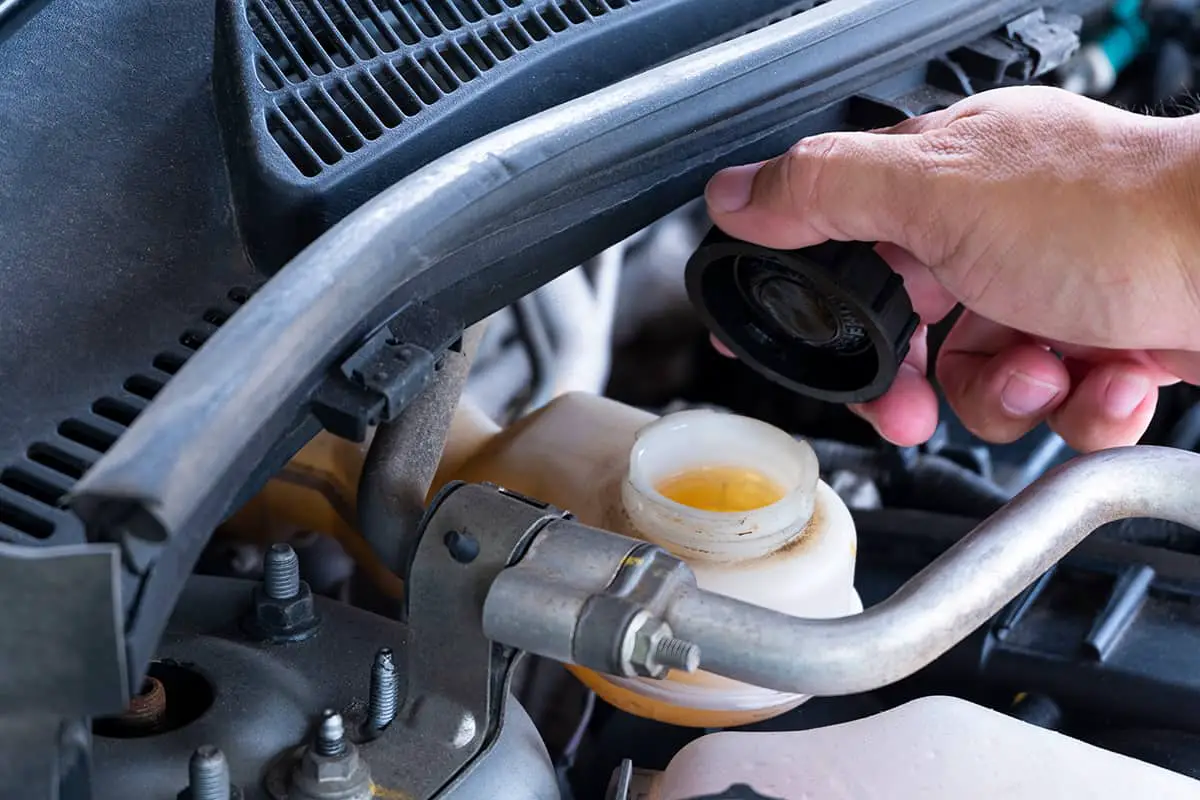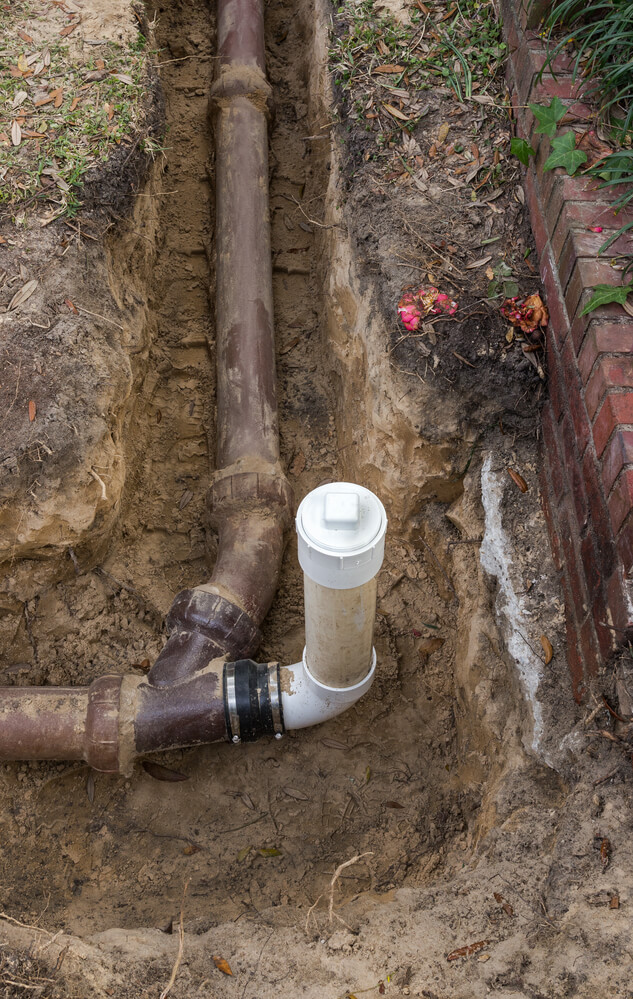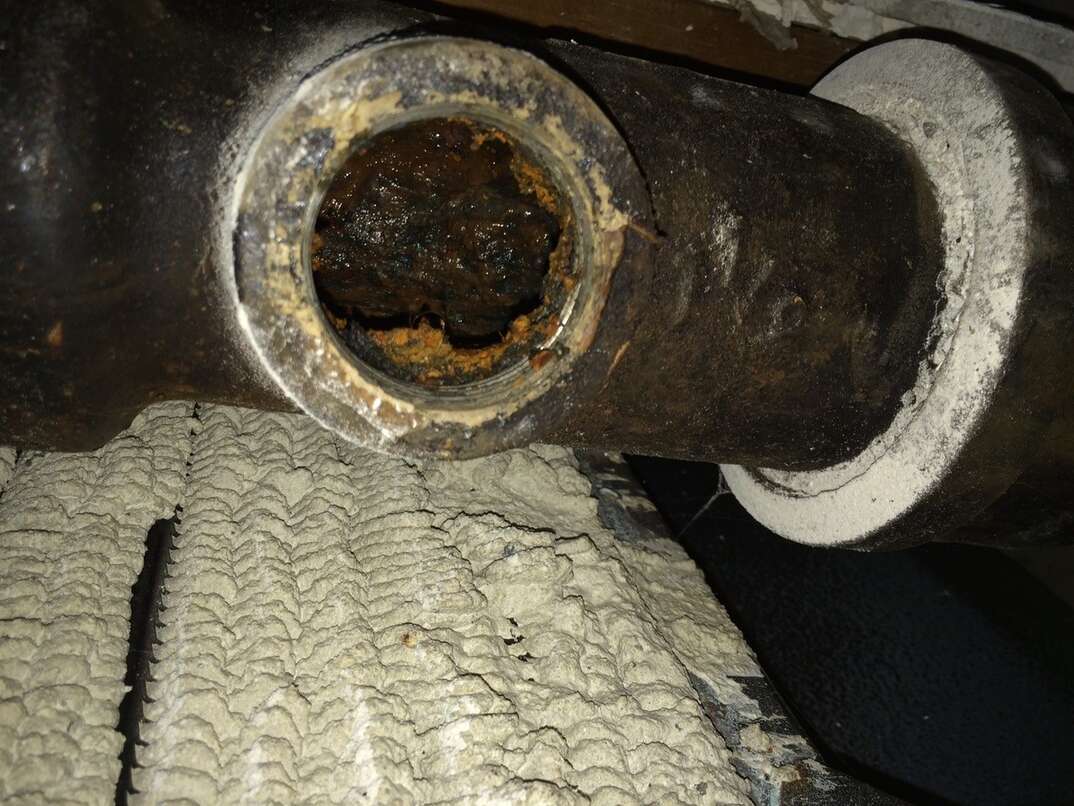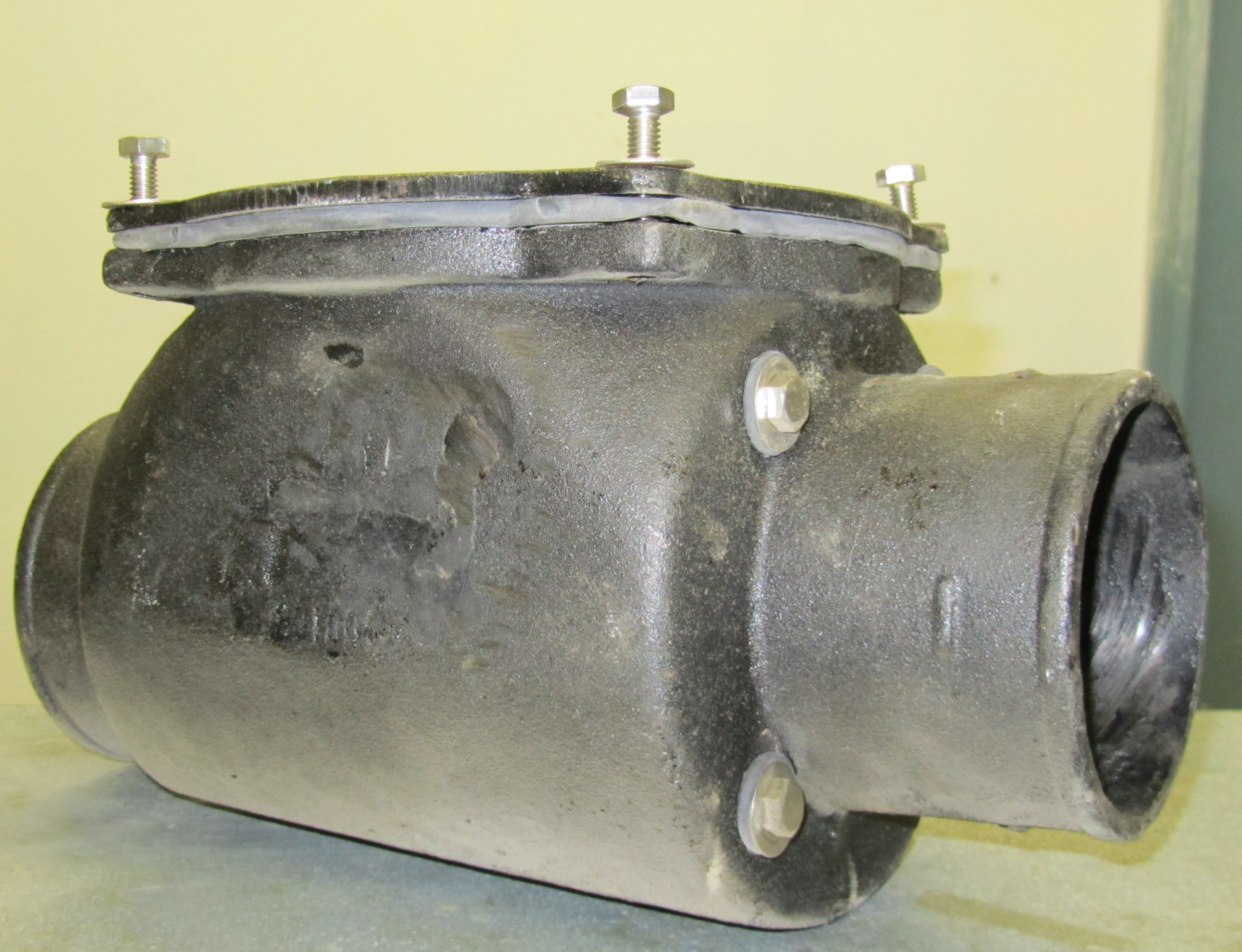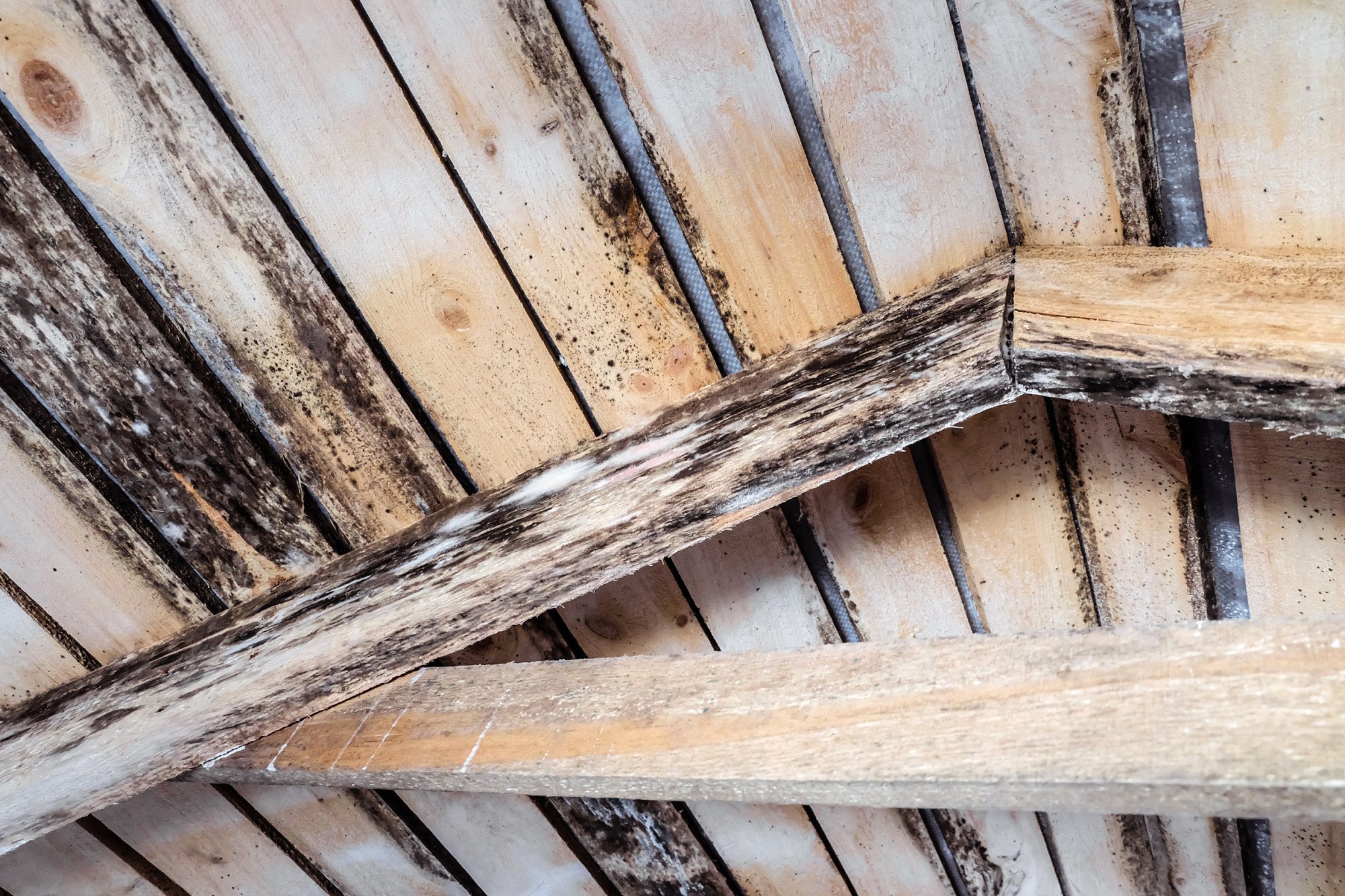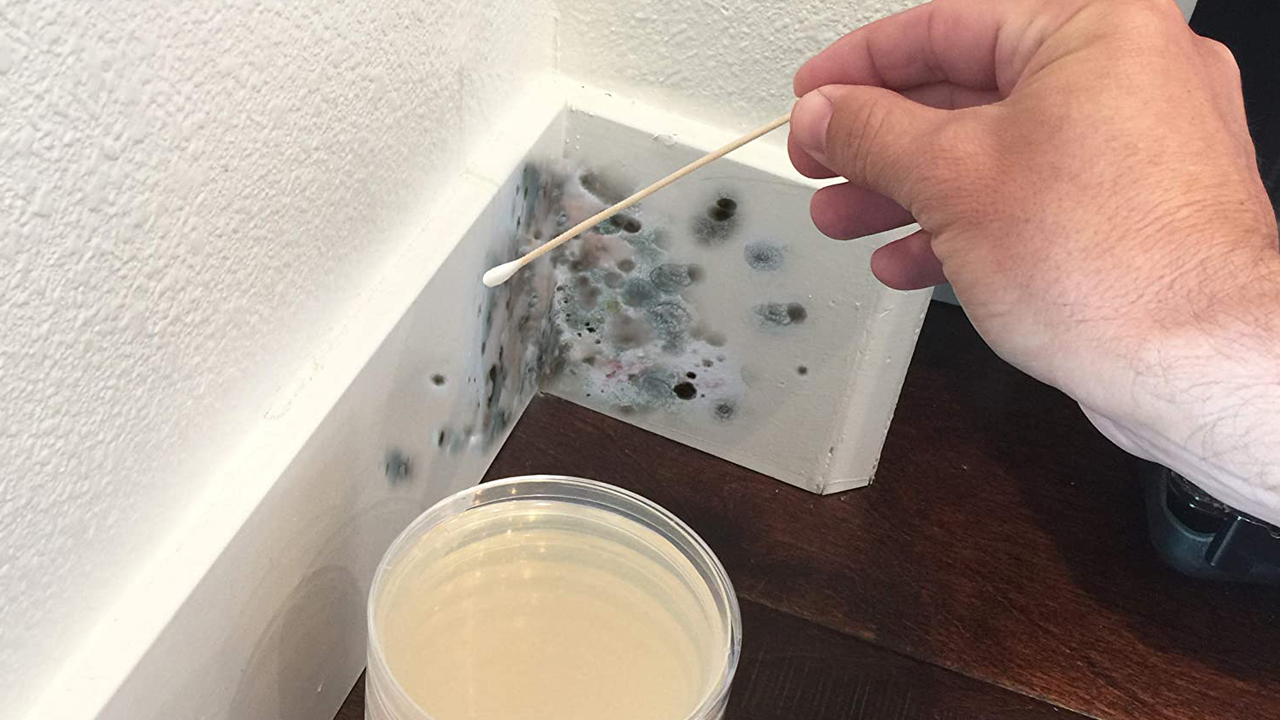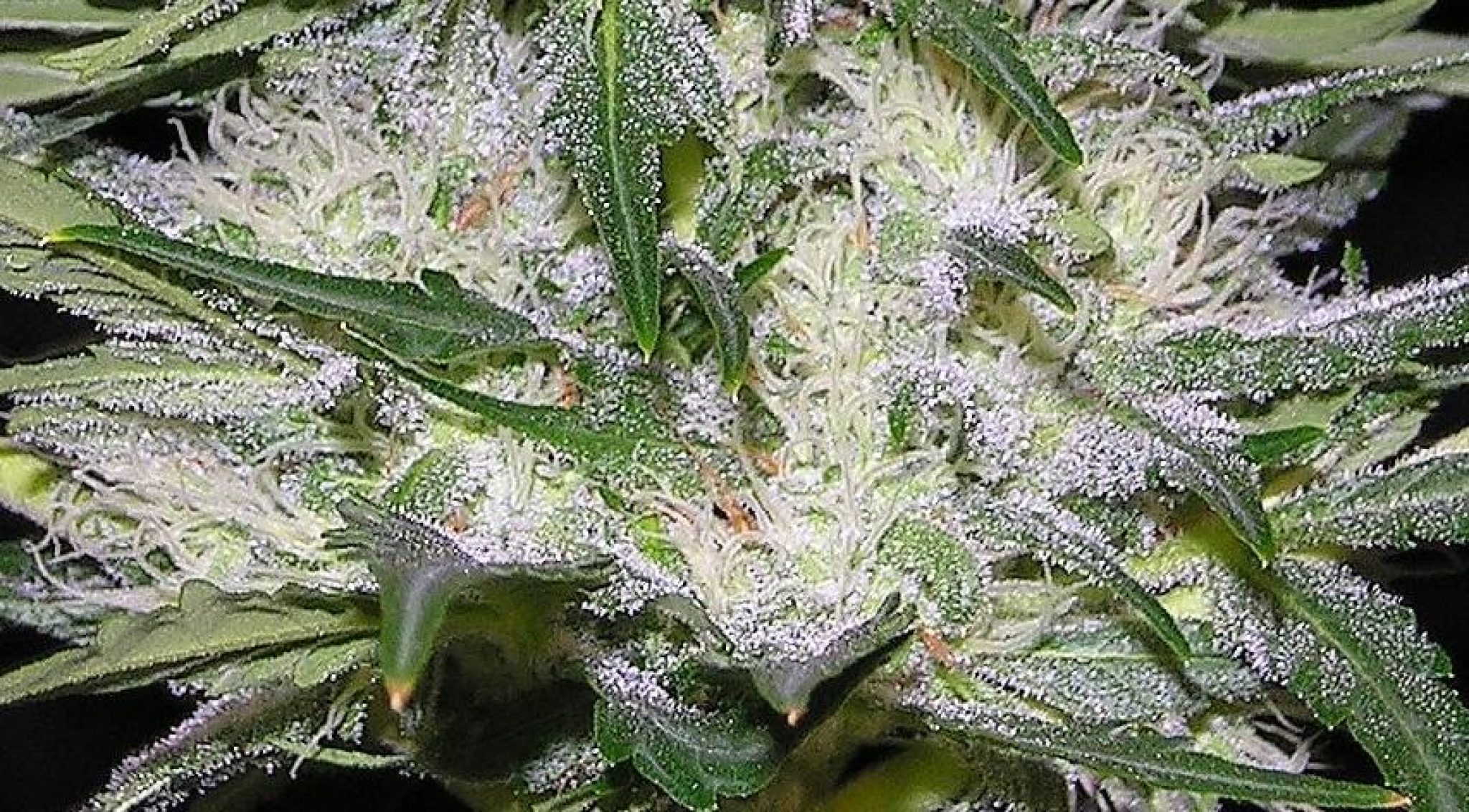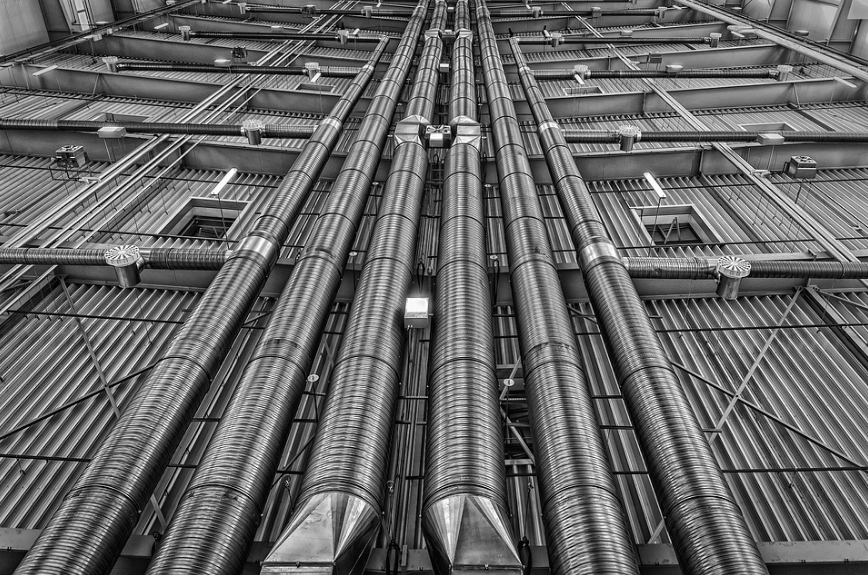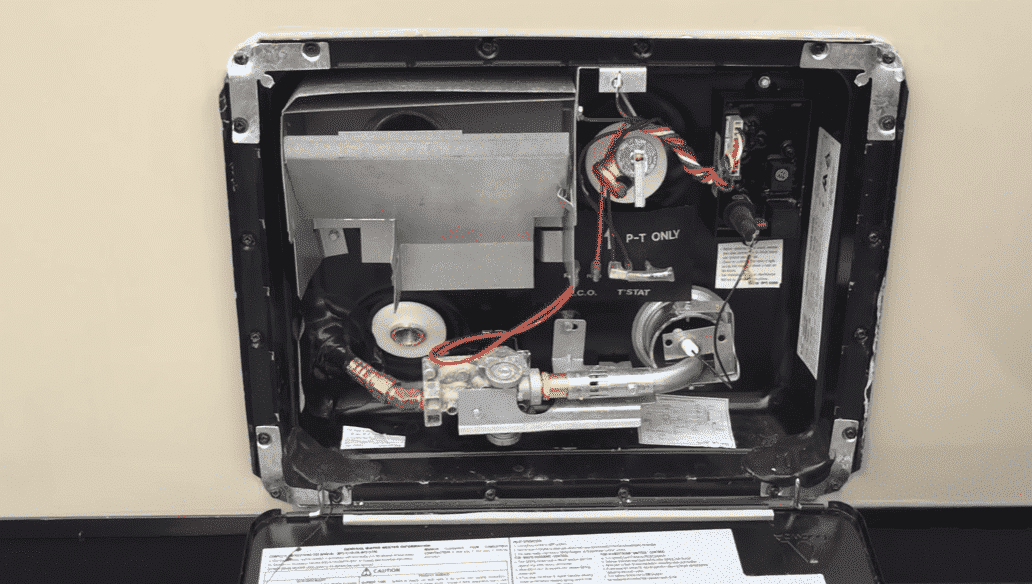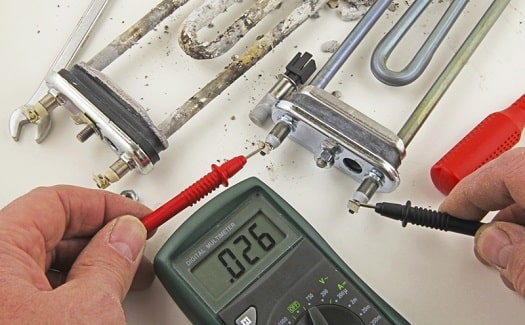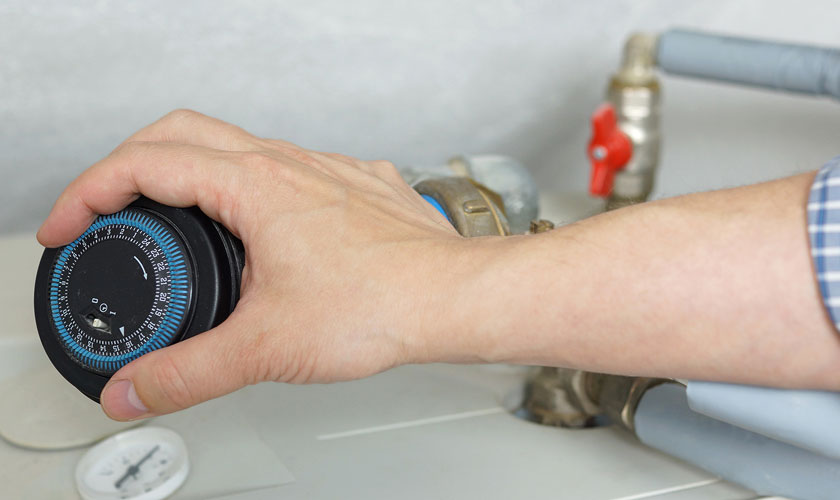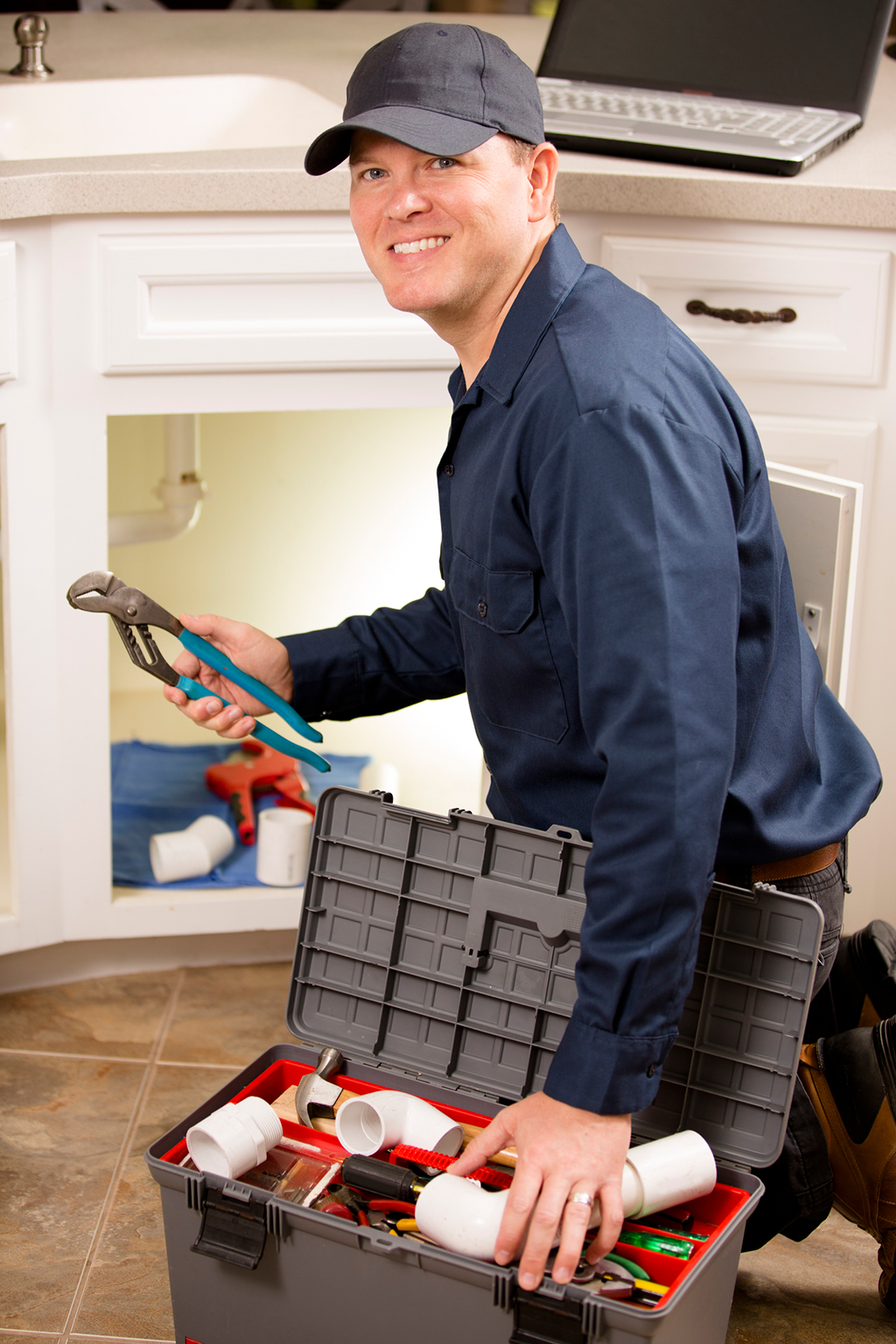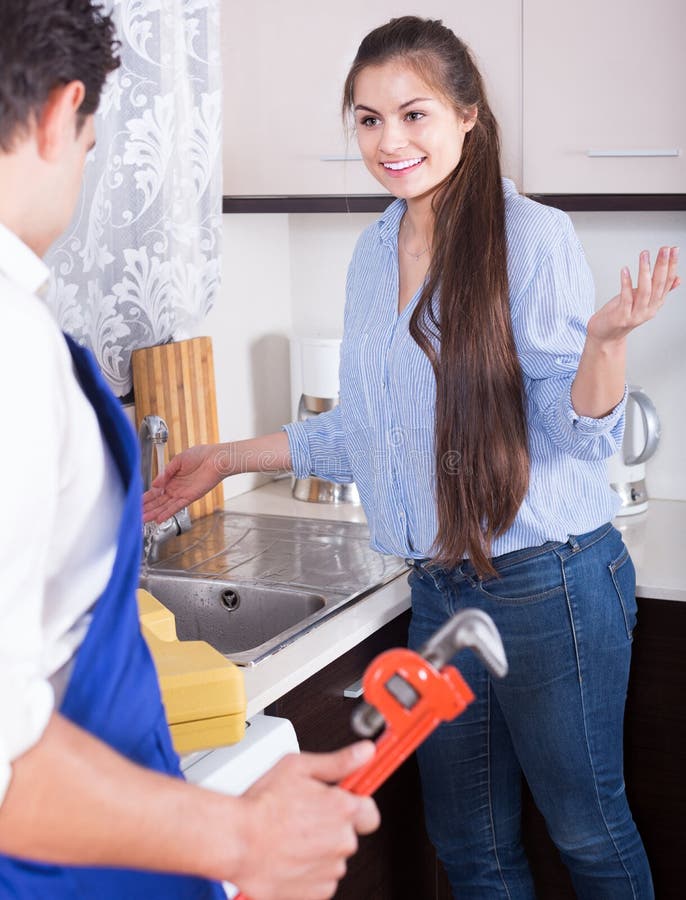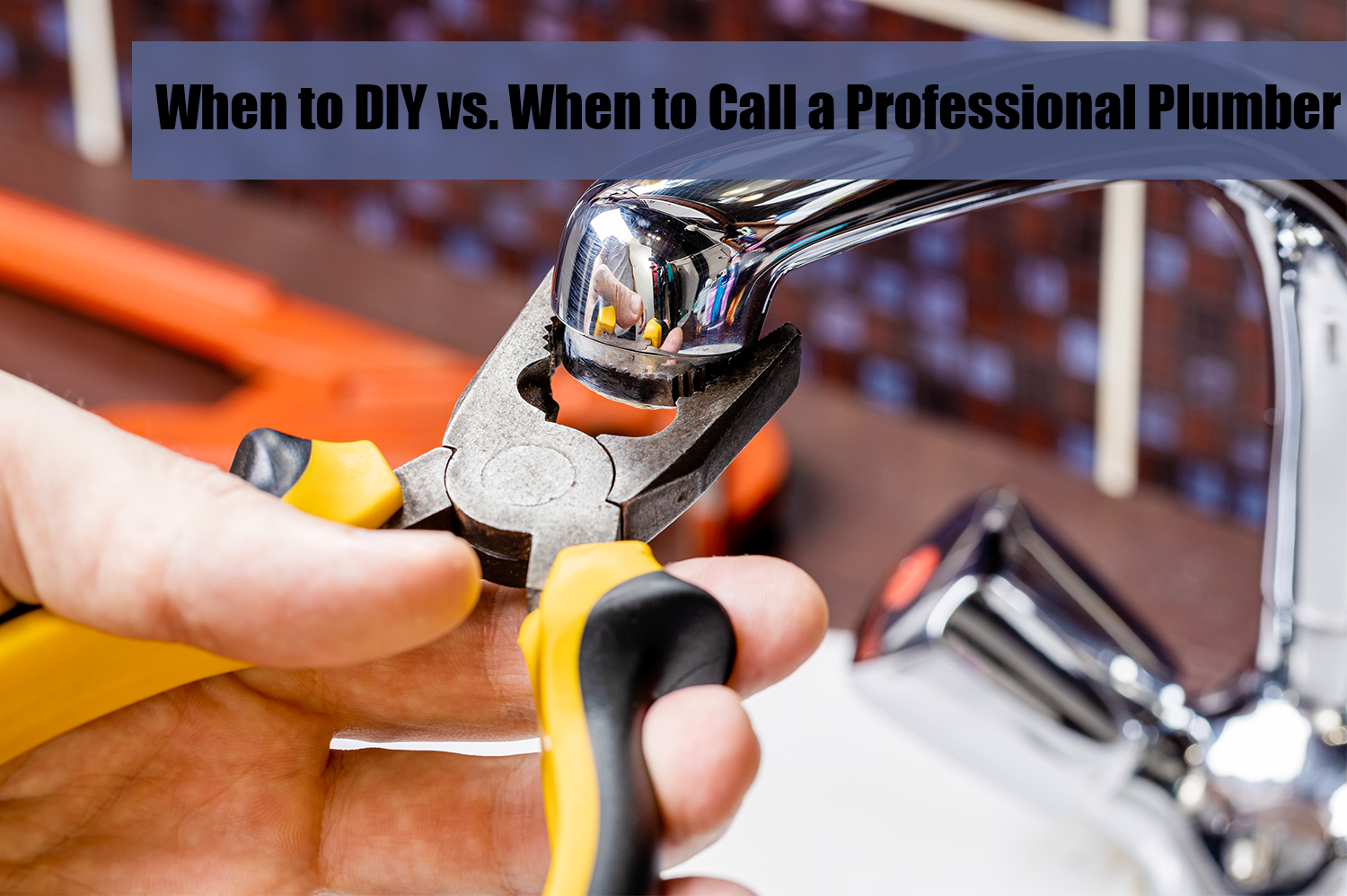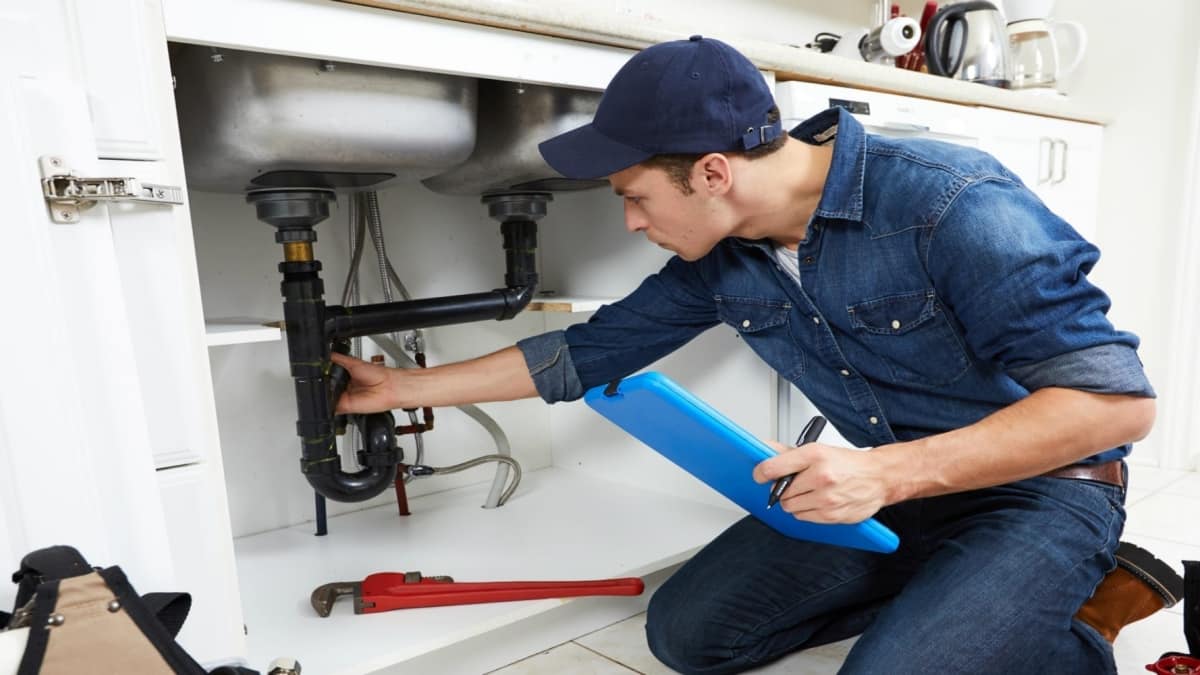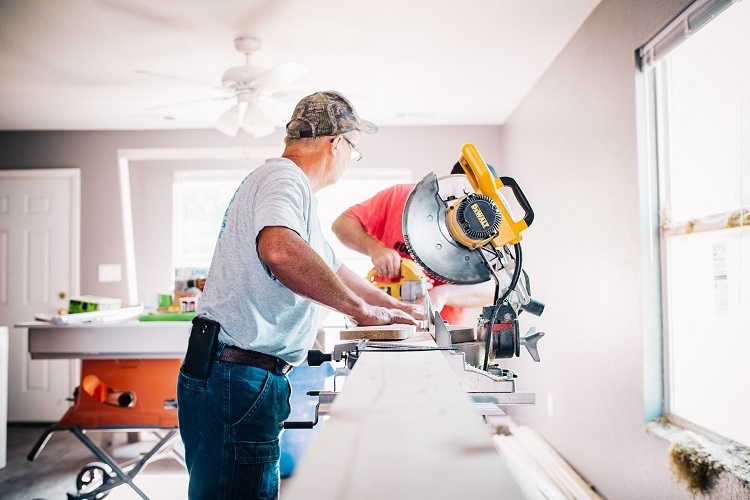If you're experiencing a strong sewer smell under your kitchen sink, the first thing you should do is check the P-trap. This is a curved piece of pipe that is designed to prevent sewer gases from entering your home. Over time, the P-trap can become clogged with debris or dried out, causing the sewer smell to seep through. To check the P-trap, simply remove the curved piece of pipe and clean it out thoroughly. If the smell persists, it may be time to replace the P-trap altogether.Check the P-Trap
The next step is to check the drain itself. Over time, debris and food particles can build up in the drain and cause a foul odor. To remove any buildup, pour a mixture of hot water and vinegar down the drain and let it sit for a few minutes before flushing it with hot water. This will help to break down any buildup and eliminate the smell. If the smell persists, it may be a sign of a more serious issue, such as a damaged drain pipe.Check the Drain
If your kitchen sink has a garbage disposal, it's important to check this as well. Food particles and debris can get stuck in the disposal and cause a foul odor. To clean the disposal, pour a cup of baking soda down the drain, followed by a cup of white vinegar. Let it sit for a few minutes before running hot water down the drain to flush it out. This will help to eliminate any buildup and odors in the garbage disposal.Check the Garbage Disposal
The vent pipe is responsible for releasing sewer gases from your home. If the vent pipe is clogged or damaged, it can lead to a strong sewer smell under your kitchen sink. To check the vent pipe, make sure it is free of any debris or obstructions. You may need to use a plumbing snake to remove any clogs. If the vent pipe is damaged, it will need to be replaced by a professional plumber.Check the Vent Pipe
If the smell persists, it may be a sign of a leak in your plumbing system. Check for any visible leaks under your kitchen sink. If you notice any, it's important to address them immediately. Ignoring a leak can lead to more serious issues and expensive repairs down the line. If you are unable to locate the source of the leak, it's best to call a professional plumber for assistance.Check for Leaks
In some cases, the sewer smell under your kitchen sink may be coming from a problem with the main sewer line. Sewer lines can become damaged or clogged, causing sewer gases to seep into your home. If you suspect a problem with your sewer line, it's important to call a professional plumber to assess the situation and make any necessary repairs.Check the Sewer Line
In rare cases, the sewer smell could be a sign of mold or mildew growth under your kitchen sink. This can occur if there is a moisture issue or a leak that has gone undetected for some time. If you notice any visible signs of mold or mildew, it's important to address it immediately. Mold can pose serious health risks and should be removed by a professional.Check for Mold or Mildew
If the smell seems to be coming from your kitchen sink drain, it's possible that you have a clog in your plumbing system. This can cause water to back up and trap debris, leading to a foul odor. To remove a clog, you can try using a plunger or a plumbing snake. If these methods don't work, it's best to call a professional plumber.Check for Clogs
In some cases, the source of the sewer smell may be your water heater. Over time, sediment can build up in the tank, causing a foul odor. To eliminate the smell, you can flush your water heater by draining the tank and refilling it with clean water. If the smell persists, it may be a sign of a more serious issue with your water heater and you should call a professional for assistance.Check the Water Heater
If you have tried all of the above steps and the sewer smell under your kitchen sink still persists, it's time to call a professional plumber. They will have the necessary tools and expertise to diagnose and fix the issue. Don't wait to address a strong sewer smell, as it can be a sign of a more serious problem with your plumbing system.Call a Professional Plumber
The Importance of Proper Plumbing in House Design
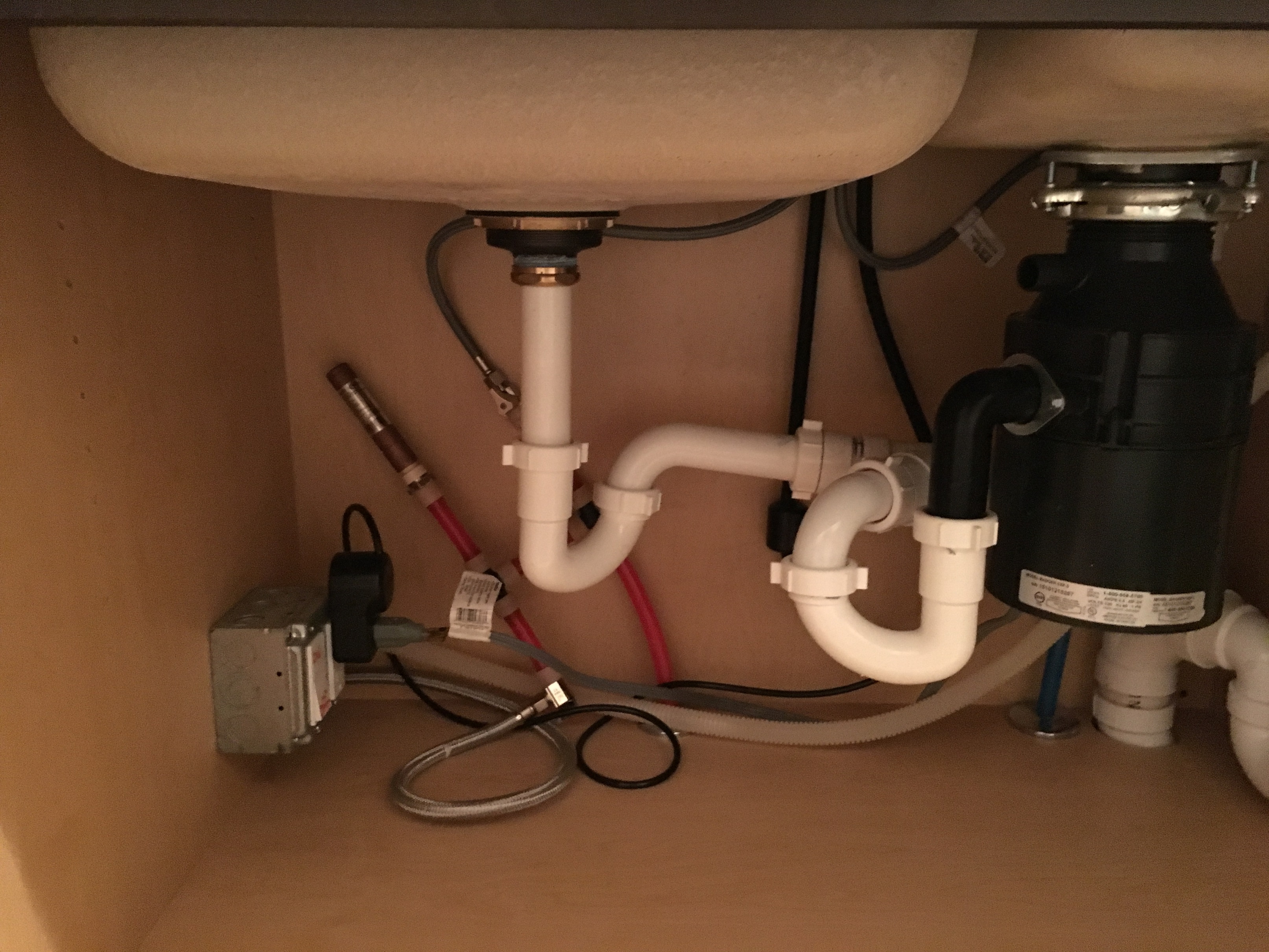
Why Does My Kitchen Sink Smell Like Sewage?
 If you have ever noticed a foul odor coming from under your kitchen sink, you are not alone. This unpleasant smell can be caused by a variety of factors, but the most common culprit is a plumbing issue. Sewer smells under the kitchen sink can be a sign of a bigger problem that needs to be addressed immediately. Not only is it unpleasant to have a constant sewage smell in your kitchen, but it can also be hazardous to your health. In this article, we will discuss why this issue may occur and the importance of proper plumbing in house design.
If you have ever noticed a foul odor coming from under your kitchen sink, you are not alone. This unpleasant smell can be caused by a variety of factors, but the most common culprit is a plumbing issue. Sewer smells under the kitchen sink can be a sign of a bigger problem that needs to be addressed immediately. Not only is it unpleasant to have a constant sewage smell in your kitchen, but it can also be hazardous to your health. In this article, we will discuss why this issue may occur and the importance of proper plumbing in house design.
The Main Cause of Sewer Smells Under the Kitchen Sink
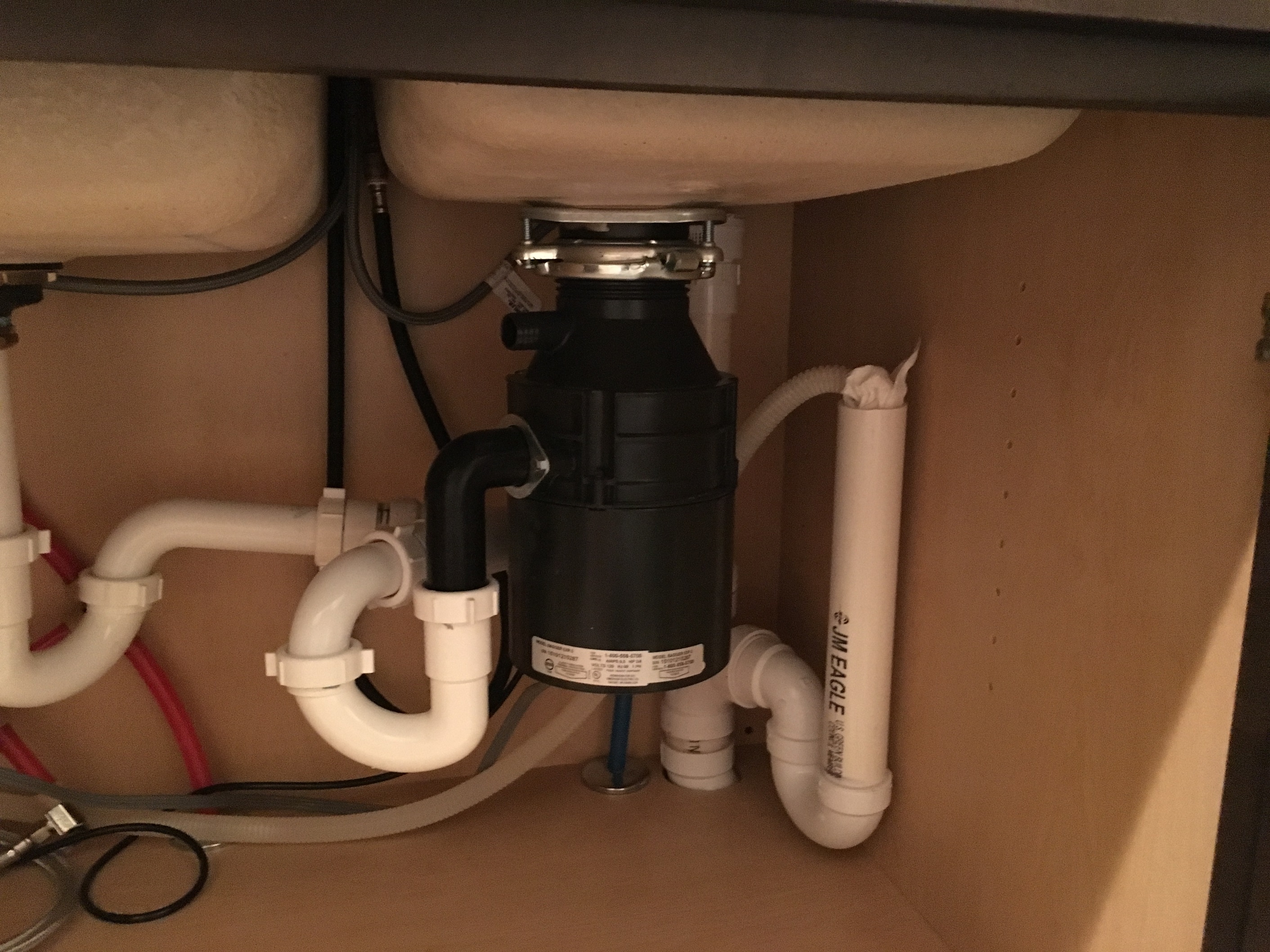 The main cause of a sewer smell under the kitchen sink is usually a damaged or clogged
drain pipe
. Over time, debris, grease, and food scraps can build up in the drain and cause a blockage. This blockage can prevent proper water flow, leading to a backup in the pipes and a foul odor. Another common cause is a broken or loose
sewer trap
. The sewer trap is a U-shaped pipe that traps water to prevent sewer gases from entering your home. If this trap is damaged or not functioning correctly, it can allow these gases to seep into your kitchen, causing the unpleasant smell.
The main cause of a sewer smell under the kitchen sink is usually a damaged or clogged
drain pipe
. Over time, debris, grease, and food scraps can build up in the drain and cause a blockage. This blockage can prevent proper water flow, leading to a backup in the pipes and a foul odor. Another common cause is a broken or loose
sewer trap
. The sewer trap is a U-shaped pipe that traps water to prevent sewer gases from entering your home. If this trap is damaged or not functioning correctly, it can allow these gases to seep into your kitchen, causing the unpleasant smell.
The Dangers of a Sewer Smell Under the Kitchen Sink
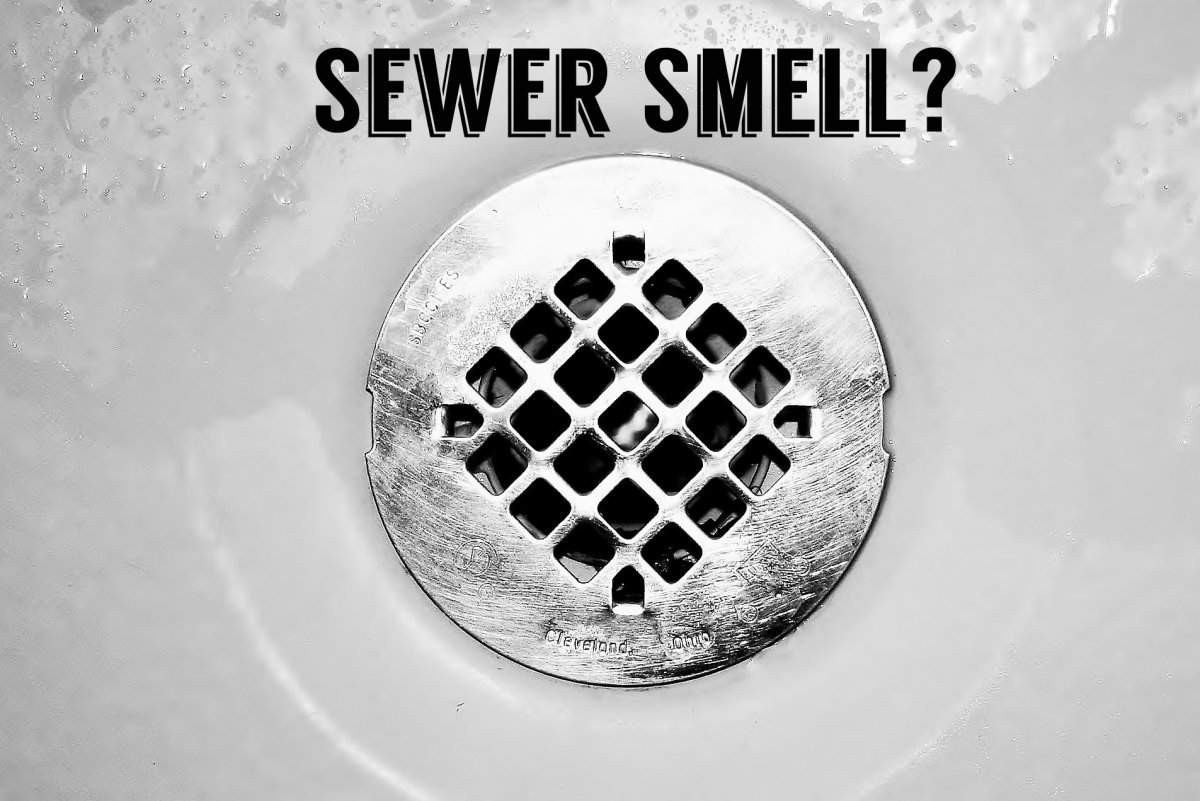 Aside from being unpleasant, a sewer smell under the kitchen sink can also be hazardous to your health. Sewer gases contain harmful toxins such as methane, ammonia, and hydrogen sulfide. Inhaling these gases can lead to symptoms such as headaches, dizziness, and respiratory issues. It is essential to address the issue as soon as possible to prevent any health risks.
Aside from being unpleasant, a sewer smell under the kitchen sink can also be hazardous to your health. Sewer gases contain harmful toxins such as methane, ammonia, and hydrogen sulfide. Inhaling these gases can lead to symptoms such as headaches, dizziness, and respiratory issues. It is essential to address the issue as soon as possible to prevent any health risks.
The Role of Proper Plumbing in House Design
 Proper plumbing is crucial in any house design, as it ensures the safe and efficient flow of water and waste. Hiring a professional plumber to assess and install the plumbing system in your home can prevent issues such as sewer smells under the kitchen sink. A well-designed plumbing system will have proper ventilation, drainage, and traps to prevent any unpleasant smells from entering your home.
Proper plumbing is crucial in any house design, as it ensures the safe and efficient flow of water and waste. Hiring a professional plumber to assess and install the plumbing system in your home can prevent issues such as sewer smells under the kitchen sink. A well-designed plumbing system will have proper ventilation, drainage, and traps to prevent any unpleasant smells from entering your home.
Conclusion
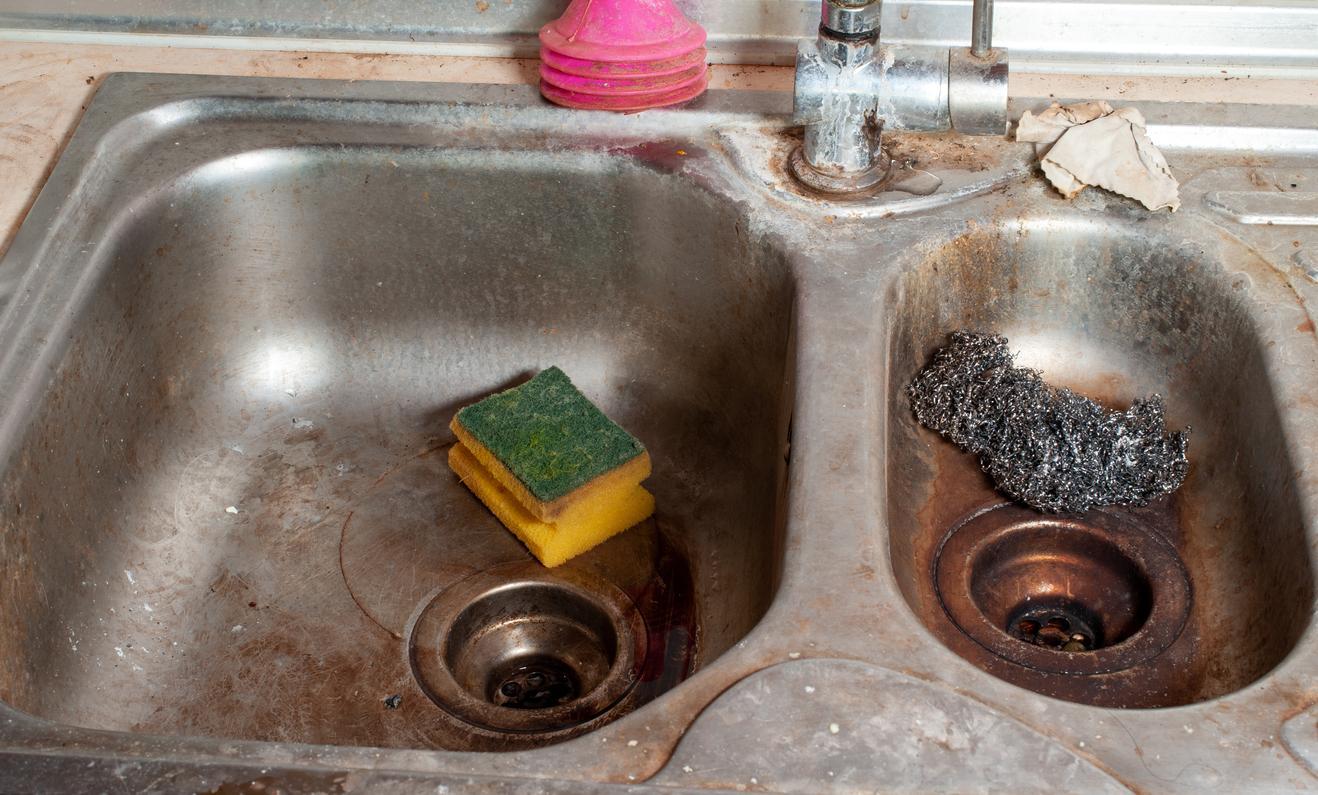 A sewer smell under the kitchen sink is not only unpleasant but also a sign of a potential plumbing issue. It is crucial to address this problem promptly to prevent any health risks and maintain the proper functioning of your home. Remember to hire a professional plumber for any house design to ensure that the plumbing system is properly installed and maintained. With proper plumbing, you can enjoy a fresh and odor-free kitchen all year round.
A sewer smell under the kitchen sink is not only unpleasant but also a sign of a potential plumbing issue. It is crucial to address this problem promptly to prevent any health risks and maintain the proper functioning of your home. Remember to hire a professional plumber for any house design to ensure that the plumbing system is properly installed and maintained. With proper plumbing, you can enjoy a fresh and odor-free kitchen all year round.



